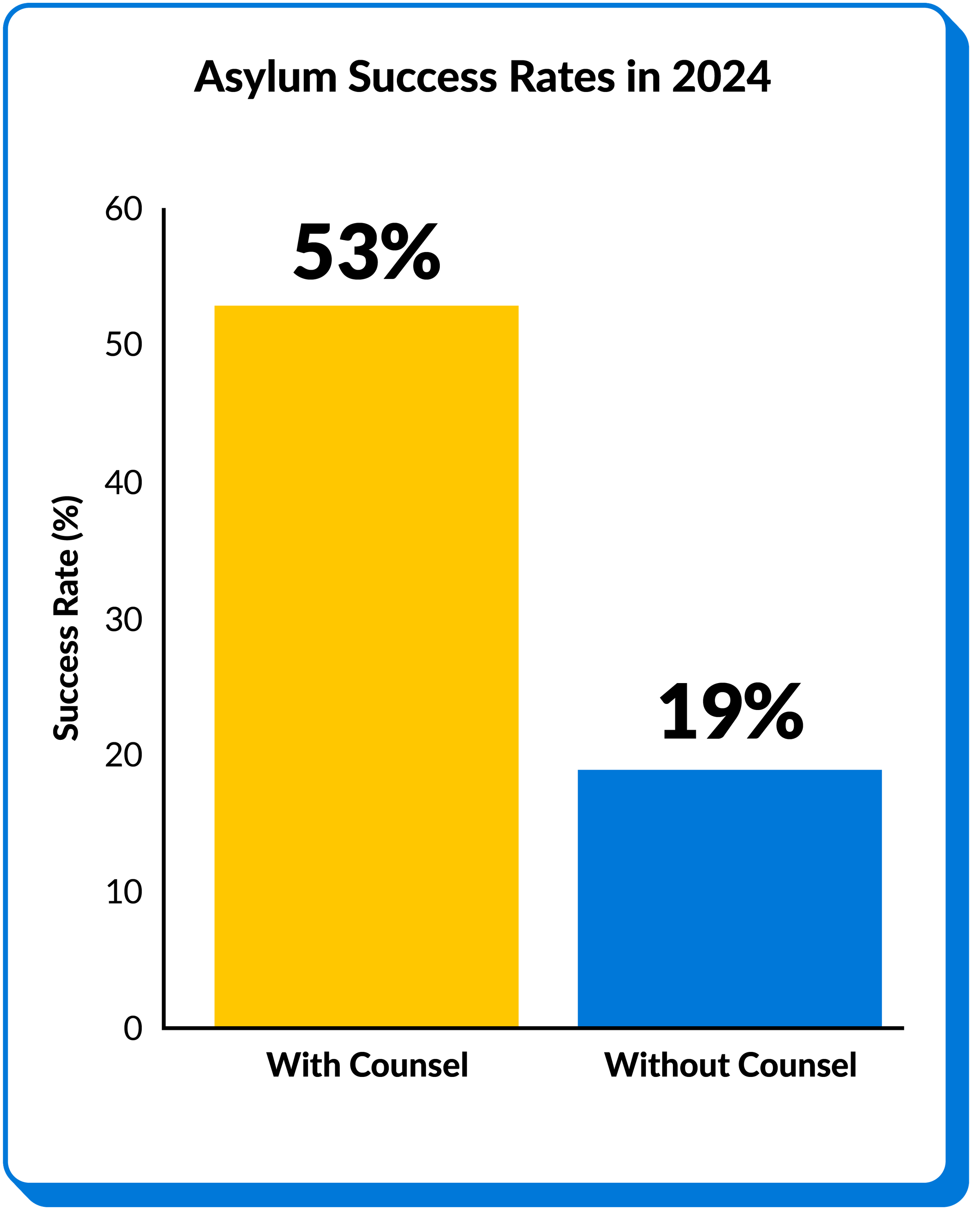In June 2025, a new presidential directive introduced sweeping travel restrictions targeting specific countries under the banner of national security and public safety. These measures mark one of the most significant shifts in immigration policy in recent years, adding complexity to an already strained system.
For immigration attorneys, staying informed on these evolving regulations—and equipping clients with clear, accurate guidance—is more critical than ever to ensure preparedness and peace of mind.
Understanding the June 2025 US Travel Ban
On June 4, 2025, President Donald Trump signed a proclamation titled "Restricting the Entry of Foreign Nationals to Protect the United States from Foreign Terrorists and Other National Security and Public Safety Threats." This directive, effective June 9, 2025, imposes full or partial U.S. travel restrictions on nationals from 19 countries, citing national security concerns such as terrorism, inadequate visa security, and poor record-keeping.
Countries Fully Banned
The following 12 countries are subject to a full entry ban, prohibiting their citizens from entering the U.S. under any visa category, whether immigrant or non-immigrant:
Afghanistan
Myanmar
Chad
Republic of the Congo
Equatorial Guinea
Eritrea
Haiti
Iran
Libya
Somalia
Sudan
Yemen
According to the Trump administration, these countries were selected based on factors such as national security concerns, inadequate identity verification procedures, failure to share information with U.S. authorities, and a perceived unwillingness to accept deported nationals.
Countries With Partial Restrictions
An additional seven countries face partial restrictions, affecting specific visa categories such as B-1, B-2, F, M, and J visas:
Burundi
Cuba
Laos
Sierra Leone
Togo
Turkmenistan
Venezuela
These restrictions are based on assessments of each country's cooperation with U.S. immigration enforcement, the reliability of their identity documents, and their willingness to accept deported nationals.
Exemptions and Waivers
The proclamation includes specific exemptions to minimize legal challenges, following criticism and litigation of earlier bans. Exemptions cover:
Lawful permanent residents (green card holders)
Dual nationals traveling on a passport from a non-designated country
Diplomats and foreign government officials on official visits
Certain immediate family members of U.S. citizens
Children adopted by U.S. citizens
Athletes and their coaches traveling for major sporting events like the World Cup and Olympics
Afghan nationals holding Special Immigrant Visas
Iranian citizens facing ethnic and religious persecution
Individuals who were granted asylum or admitted to the U.S. as refugees before the ban took effect
How to Check for Updates on Travel Bans
U.S. travel restrictions can change with little notice due to new executive orders, court decisions, or shifts in foreign policy. To ensure you're working with the most current information, regularly consult reliable, authoritative sources. These updates not only help protect your clients' interests but also ensure your legal guidance remains timely and accurate.
Trusted immigration news resources to monitor include:
Why Understanding Travel Restrictions Matters Now
Policy shifts like this are happening in an immigration system under extraordinary pressure. According to the Docketwise 2025 Legal Industry Report: State of Immigration, in 2024:
Over 900,000 immigration court cases were resolved—more than a third ended in removal orders
The court backlog ballooned to nearly 4 million cases, quadrupling over the past decade
This volume places enormous strain on courts, legal advocates, and immigrant communities alike. For practitioners, these changes are not abstract; they affect real lives, families, and futures. The ability to respond swiftly and strategically can make all the difference.
Communicating Effectively With Clients About the Travel Bans
Clients often feel anxious, confused, and overwhelmed when policies shift rapidly, like with the June 2025 US travel ban. In these moments, clear, proactive communication becomes just as important as legal knowledge. How and when you engage with clients can build trust, reduce uncertainty, and reinforce your value as a reliable guide through changing legal terrain.
Below are a few tips to help you deliver clarity and confident communication to clients:
1. Be Specific, Not Hypothetical
Begin by conducting a targeted review of your current caseload to identify clients who may be directly affected by the latest travel restrictions. Rather than speculating about future scenarios, focus on concrete details like nationality, visa type, and current case status. Certain case management platforms, such as Docketwise, offer filtering tools that allow you to quickly sort clients by these criteria, helping you prioritize outreach and deliver timely, relevant guidance.
2. Provide a Personalized Plan
Clients are likely asking: Am I affected? What are my options? When they reach out with concerns, they’re looking for more than reassurance; they want actionable steps. Be prepared to address common questions about:
Waiver eligibility
Exemption possibilities
Alternative visa strategies
Digital intake tools and form automation can streamline the collection of key client information, making it easier to tailor your advice and accelerate decision-making.
3. Set Expectations for Ongoing Change
Immigration law is inherently dynamic, and setting this expectation with clients from the outset builds trust. Let them know that change will happen and happen often. Encourage flexibility in travel plans and timelines, emphasize the importance of keeping documentation current, and maintain open channels of communication.
Building a Resilient Practice for Policy Volatility
Immigration law is deeply impacted by political tides, and policy shifts like the June 2025 travel ban are stark reminders of how quickly things can change. For immigration attorneys, building a resilient practice isn’t just about adapting—it’s about anticipating change and responding with clarity and speed.
Streamlining operations, standardizing processes, and leveraging the right technology can empower you to safeguard your firm and better serve your clients, no matter what comes next.
Representation Matters
In immigration law, the presence of legal counsel can be the deciding factor between protection and deportation. The stakes are high, and the process is anything but simple—navigating visa options, responding to RFEs, or defending against removal orders requires both legal expertise and procedural precision.
The Docketwise 2025 Legal Industry Report: State of Immigration underscores this truth with compelling data:
Cities with higher legal representation, such as New York City and San Francisco, have asylum denial rates as low as 16-26%
In 2024, represented asylum seekers had a 53% success rate compared to 19% without counsel

Create Flexible, Repeatable Workflows
Every immigration case is unique, but your internal processes don’t have to start from scratch with each policy change. With the right technology, templates, and workflows in place, firms can standardize responses for common case types while retaining the flexibility to adapt to changing requirements.
Whether preparing an I-130 package or responding to a travel ban inquiry, pre-built workflows streamline your operations and reduce the risk of oversight. This consistency saves time, enhances accuracy, and empowers staff to act confidently, even when policies shift overnight.
Establish a Proactive Communication System
Clients look to their attorneys for clarity in uncertain times, and how you communicate can shape their entire experience. Look for software that makes this easy—tools like a secure client portal allow you to centralize all communications in a single, safe place. This can minimize the volume of one-off calls and emails, freeing up time for your team and providing clients with timely, accurate information when they need it most.
How Docketwise Supports Firm Agility
When policies change, flexibility is your greatest asset. Docketwise equips immigration firms with the tools to pivot quickly—whether that means updating forms, rerouting case strategies, or reaching clients with critical updates. Firms can adapt to new regulations with a centralized, user-friendly platform without disrupting operations or compromising client service.
With Docketwise, you get:
Multilingual Smart Forms to reduce errors and speed up form prep
Real-time USCIS tracking to stay ahead of court delays
A secure, mobile-friendly client portal for real-time communication
E-filing and flexible billing tools that keep processes moving
Confidently Leading Clients Through Uncertainty
Immigration attorneys are more than legal advisors—they’re lifelines for clients navigating uncertainty. With the right tools and strategy, you can provide clarity, direction, and peace of mind—no matter how the landscape evolves.
Explore how Docketwise can help your firm stay ready. Schedule a demo today.
About the author
Mary Elizabeth Hammond is a Senior Content Strategist and Blog Specialist for Docketwise, a leading professional business solution. She covers emerging legal technology, financial wellness for law firms, the latest industry trends, and more.

